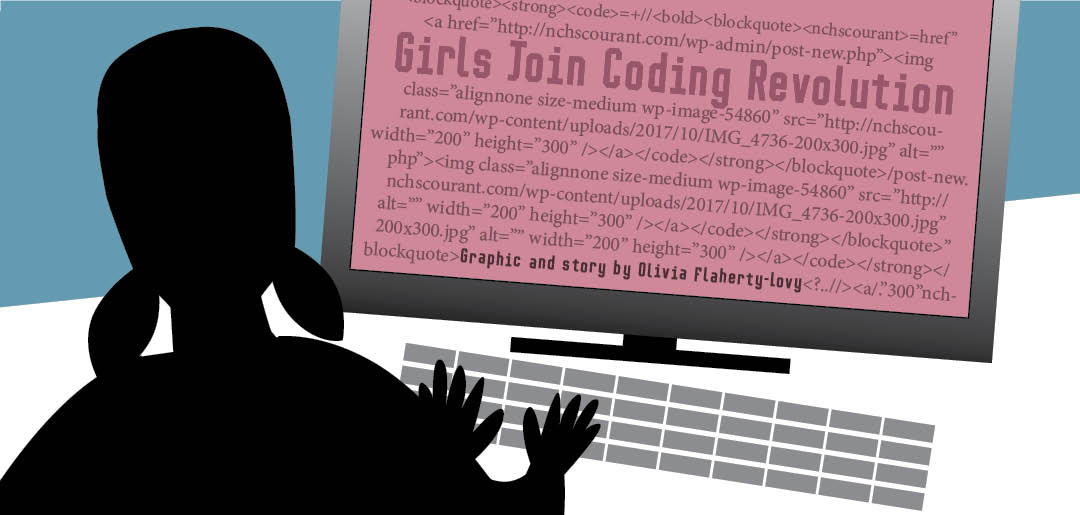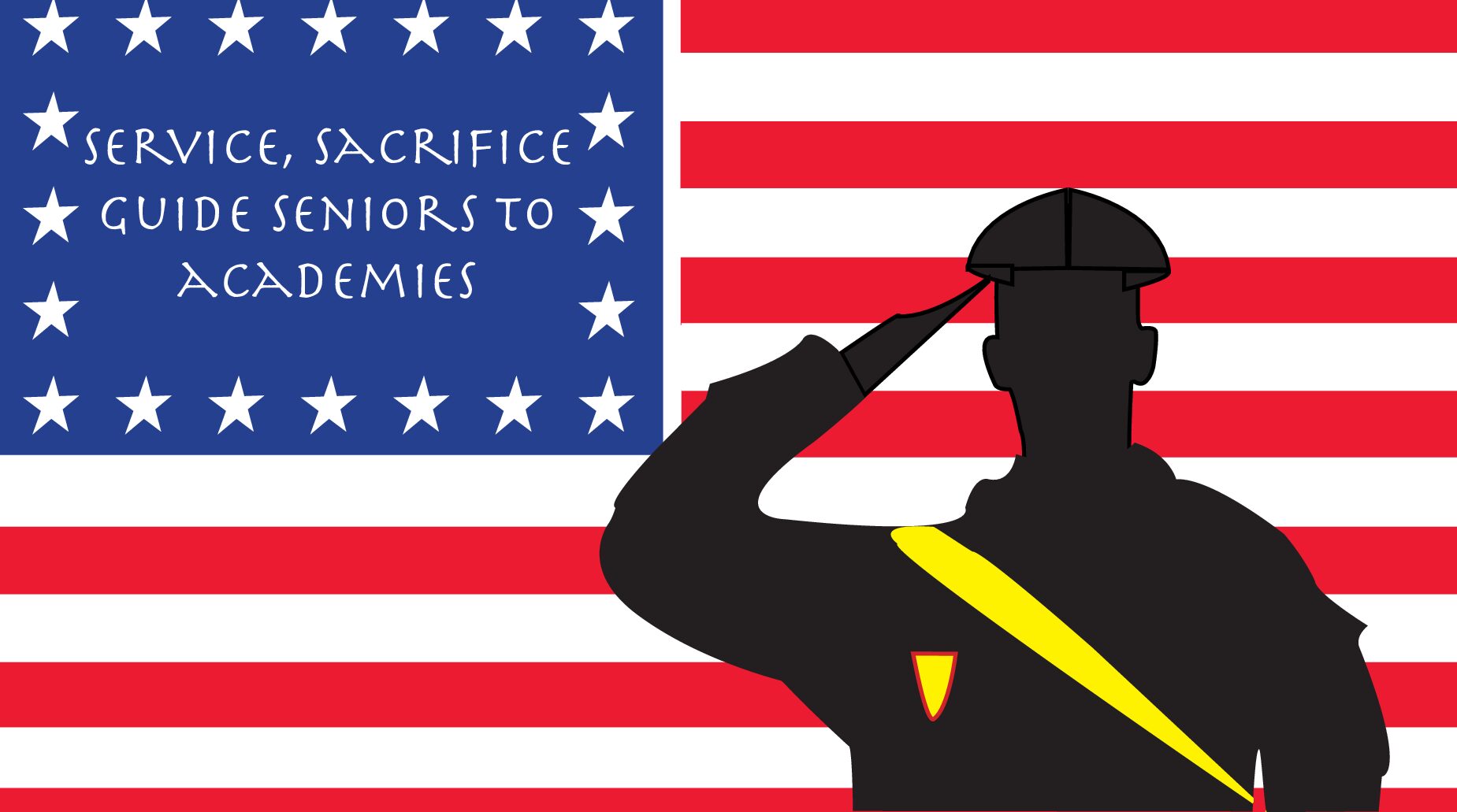Olivia Flaherty-Lovy
@ofl_courant
Junior Elizabeth Greer spent her February break in Italy. Sophomore Isha Teredesai was back home in New Canaan, and Junior Stephanie Murphy was strapping on skis in New Hampshire. Yet these three NCHS girls came together, through late night FaceTime calls, to participate in the Girls Go Cyberstart Competition. This national coding contest presented challenges in cryptography, web attacks, forensics, programming and linux, and was introduced as an initiative to introduce more girls to cybersecurity. The NCHS team from the Girls Who Code club didn’t just compete, however- with 24,400 points, they placed 16th out of over 230 teams that participated.
Elizabeth Greer, who joined the Girls Who Code club in her sophomore year, said that the competition allowed her to see how computer science can be applied to cyber security. “I had done some programming before, but I had never seen real world applications,” she said. “It really sparked greater interest and understanding.”
The Girls Who Code club was founded by NCHS graduate Kavya Dagli in 2016, but has started to take bigger strides this year under the leadership of Stephanie Murphy. After spending the summer after her Sophomore year at the Girls Who Code Summer Immersion program at a Microsoft office in New York, Stephanie decided that she wanted to bring what she learned to NCHS. “It was such an amazing experience,” she said. “I was introduced to all the aspects of Girls Who Code and learned that they actually have a club curriculum, which I wanted to bring to the high school.”
Stephanie was encouraged to explore the summer initiative program held at a Microsoft office in New York after participating in a robotics class where she was one of three girls in a class of about 25. This situation isn’t unique, however- according to the National Science Foundation, in 2014, only 18% of computer science majors in the United States were women. This statistic is partly of the fact that the number of high schools in the US that offer computer science courses has decreased by 35% since 2005, according to the National Center for Women and Information Technology. Fortunately, NCHS does not fall into the category of schools that do not offer opportunities to learn computer science skills, with classes such as AP Computer Science Principles, Exploring Computer Science, Web Design, and many more.
Club advisor and computer science teacher Rachel Martinich emphasized the importance of having opportunities for girls to explore coding and computer science at the high school level. “I think it is important for students to learn the inner-workings of the technology they’re using and become creators of their own technology,” she said. “For those who do not have room in their schedules, Girls Who Code creates a comfortable environment for girls to explore the subject area and not feel intimidated.”
Though NCHS does offer many classes in computer sciences, no prior knowledge is needed to join the Girls Who Code club, where participants have a lot of freedom in deciding what they want to work on each meeting. “I try to make the club as personalized as possible, though we do complete a group project at the end of the year,” Stephanie said. “This year, we’re going to do something robotics-based, and we’re scheduled to present it to AppNexus, which is a communications and advertising company in New York.”
The Girls Who Code club hopes to continue to grow and expose more girls to computer programming, and is looking to create a “sister club” with the middle school in coming years. “The purpose of the club is to create a place where girls feel comfortable learning to code and exploring the area of computer science,” Ms. Martinich said. “It is important for students to learn the inner-workings of the technology they’re using to become creators of their own technology.”




